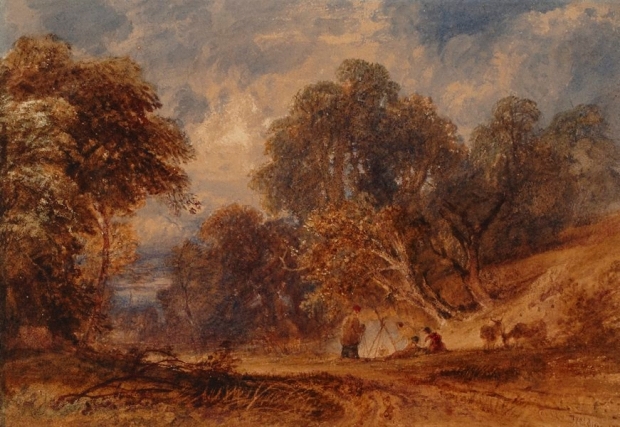Take one stanza from the Scholar Gypsy and carefully explicate its meaning saying how you think the language and form (stanza shape) contribute to the stanza’s power and effect.
This week we looked at Matthew Arnold’s, The Scholar Gypsy, which is essentially based upon Joseph Glanvill’s Vanity of Dogmatizing. In Arnold’s work, he describes the spirit of the scholar travelling the Cumner Hills near Oxford thus achieving immortality. (Greenblatt 1380) The stanza I have chosen to examine is from lines 161 to 170.
“For early didst thou leave the world, with powers
Fresh, undiverted to the world without,
Firm to their mark, not spent on other things;
Free from the sick fatigue, the languid doubt,
Which much to have tried, in much been baffled, brings.
O life unlike to ours!
Who fluctuate idly without term or scope,
Of whom each strives, nor knows for what he strives,
And each half lives a hundred different lives;
Who wait like thee, but not, like thee, in hope.”
This stanza from lines 161 to 166 is referring to the Scholar Gypsy, then from lines 166 to 170 he is referring to us – the reader. Within this stanza he is saying that the Scholar Gypsy had no distractions and was “undiverted to the world without” unlike our lives which are often filled with distractions and diversions. I believe he is implying that a life filled with diversion and distraction leads to a life filled with “sick fatigue and languid doubt.”
Arnold’s rhyming pattern in his entire poem is consistently changing and in this stanza his rhyming pattern changes in the first half when he is referring to the Gypsy, and then again when he is talking to the reader. The rhythm changes in the last four lines of this stanza, and in the final line there is a harsher quietness and almost disconnected twinge when he says “in hope”. Where Arnold contrasts the reader to the Gypsy, it brings power and effect to the stanza as if he is showing that this Oxford Scholar who abandoned ‘intellectuality’ for a life to learn “gypsy lore” is the way life should be lived.

“A Gypsy Scene” by Copley Fielding 1853
As a lasting note while Matthew Arnold has my thoughts, perhaps he is right in the sense that we should not question our desires and stop living a life worth half living.
Image from: https://www.artgallery.nsw.gov.au/collection/works/8057/
Brianna, I like how you form your blog it is acutely capturing, within the beginning, you provide some background knowledge about “Arnold’s work” and the protagonist. You simply express your points. I agree with you, “Scholar Gypsy” is adamant about the path he has chosen to lead. Keep in mind to not be so repetitive, for example, “distractions” you could change the word choice. My next comment is minor, but when numbering the pages, don’t forget to put it in “brackets.” Nice work!
LikeLike
Another excellent blog Brianna- and in some ways this is a real companion to your creative blog, because the SG is doing precisely what you did in your 100 km beach journey to new perspectives. Well done!
LikeLike